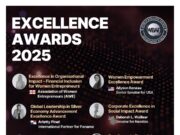The Government of Hungary adopted the National Export Strategy in March, setting goals in exports for the 2019-2030 period. A new institution operating under the supervision of the Ministry of Foreign Affairs and Trade, the Hungarian Export Promotion Agency (HEPA) has been established to support these goals. Balázs Hendrich, CEO of HEPA says that Hungary’s export activity has a solid foundation and all the conditions necessary for sustaining growth are met. Here is an exclusive interview with the CEO of HEPA.
In the past 5 years you were the Hungarian Consul General in Istanbul. Can you build on this experience in your current position? What is your opinion about Hungary’s export activity?
It is definitely a plus that I saw how export promotion institutions operate while working at a foreign mission in a foreign market. There are many areas to develop, and with the open economy we have in Hungary, state-level measures are required to promote exports to find a way to sustain this openness and economic growth in an interesting and marketable way. In Istanbul I experienced the level of efficiency integrated operations can achieve. Institutions and experts working to promote foreign trade were physically in the same place there, and the various portfolio elements, from culture to the economy and politics could support one another in everything. I believe that there is a solid foundation, and I was given the task to continue this process of building.
How does HEPA contribute to achieve the goals set for export promotion?
The basis and starting point in our tasks is the National Export Strategy adopted in March 2019, which views Hungary’s activities in foreign markets holistically and attempts to identify the areas where additional resources could be well used. Thanks to comprehensive analyses, we can see which strengths that can be turned into an advantage on the market and which industries that could benefit from more attention. In line with this approach, our primary objective is to help Hungarian small and medium enterprises have a stronger export presence, to increase their market share and to help them get new market opportunities.
How can you help enterprises to find the foreign market that is best for them?
We have established five regional partner offices, in Tokyo, Shanghai, Istanbul, Belgrade and Moscow. This network plays a crucial role in this, and so does the network of foreign trade attachés, which provides global coverage and a huge amount of information. We analyse this vast amount of information and make it accessible, e.g. through an application we are developing, which will be launched in a few months. This market information, these analyses and statistics will help entrepreneurs develop their foreign market strategy. We can support their strategy with trainings and development plans, and we provide conventional activities, such as organising expos and business forums abroad and participation in government delegations.
What are the requirements for enterprises? What is the threshold for entry?
This has always been an issue, but I don’t think there is a need for a threshold. There are many tradable and high value-added ideas and innovations that don’t even have an enterprise yet, so there is no historical data, yet they can become interesting on the global market in no time.
HEPA provides differentiated services according to the different levels of enterprises such as the Startup Campus Hungary powered by HEPA programme, where we work with startups, and there are no thresholds like sales revenue or the number of employees. Naturally there are programmes where these are relevant, for example in Key Exporters Partner Program.
What do you need for your foreign market entry to be a success?
Entering a new market is always risky, you need development, and, more than anything, a strategy. A strategy is good if during its development the enterprise analyses itself thoroughly, this self-assessment is always of key importance. Being active in a foreign market involves ongoing learning, but there are many things you can prepare for and with that you can save time and money. This is where we come in: we can shorten the time to market and do it in a cost-effective way. We do not do their work for them, but if enterprises have a strategy, they can count on our cooperation.
What regional changes are taking place? Which markets are becoming more interesting?
Most of Hungary’s export is directed to Europe. More specifically, Germany is our largest market. In addition to maintaining and developing our partnerships in Europe, we aim to access markets with a higher growth potential. These are the regions in the Far East and in America. In Sub-Saharan Africa, we must get ready to provide various services in the water industry, in the health care industry and in the energy sector. In the south we are exploring several strategies, for example teaming up with another country that has an active presence in Africa and getting ahead on the market together. We are already considering this with Turkey, particularly in the fields of infrastructure development, hospital building, road network development, and in the railway and energy sectors. Cooperation is not easy, as competition is fierce.
As you mentioned, one of your regional partner office is based in Istanbul. Can you give us information about the activities of HEPA in Turkey?
HEPA has an extended network of partner offices, our regional partner office is located in Istanbul. Through the ALX Hungarian-Turkish Trade Centre, our partner office explores the demands of the Turkish market, and reveals the opportunities offered by the Hungarian supply and the foreign demand. The office also carries out promotional activities, through which it contributes greatly to the visibility of Hungarian sectors and products. The colleagues of our regional partner office are professionals with extensive experience in foreign trade, therefore, they can genuinely represent the industries that are of key importance to us.
What kind of opportunities does Turkey offer to Hungarian business people?
It is safe to say that our bilateral commercial relations are diversified and are prosperous in several industry sectors. In spite of the fact that Turkey has done a lot in the past years to reduce its reliance on import and they have reached significant achievements on many fields, there are still some areas in which they are in continuous need of import. These are the segments where Hungarian companies offering innovative products and services with great added value have a good chance of approaching the Turkish markets.
Hungary, as a member state of the EU, serves a European market consisting of approximately 500 million persons with premium quality Hungarian products and services of great added value as well as its advanced technology. We believe that this potential is appealing to the Turkish business entities.
Which sectors would you like to highlight for Hungarian and Turkish business people?
The most important Hungarian export items are products of the motor vehicle industry, agricultural goods and health industry products, but we also see huge potential for the so-called smart solutions, such as the digital tools that are essential for building smart cities. We are in contact with thousands of Hungarian enterprises, and we believe that innovative Hungarian products, too, have a great future ahead of them. Turkey is implementing large-scale development programmes in the field of urbanisation based on the smart city concept. This trend requires the integration of digital technologies, in which Hungarian companies have already pioneered in several other countries.














